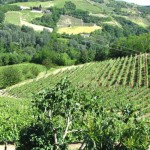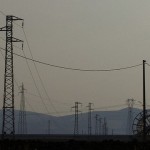Summary: In the Andravida-Kyllini municipality, in 2014, it is a Greek citizen of Syrian origin who was elected mayor. The fact that he immigrated did not hinder his election, as, in the same time, Golden Dawn, fascist party of extreme … Continue reading
Tag Archives: life conditions
Between the prefabricated housing and asparagus fields ..
Summary:
Asparagus is a luxury vegetable very consumed in Germany, since 2003 she is the first producer in Europe. But the lack of a minimum wage applied to all professional sectors and the system of Minijob (short-term contracts, very few binding on the employer) causes many abuses of agricultural workers. The agricultural labor force employed in the collection of vegetables and fruits is almost essentially foreign. Polish Historically, there has been an influx of Romanians and Bulgarian recent years. Working conditions, hard because pickups techniques are often made worse by rights violations and lack of control tools.
The imposition of a minimum wage would be a first step towards more equality between national and foreign workers, but many blockages exist among employers. They fear not being able to withstand competition and pressure on prices, this is particularly true for those who sell their production outside of short circuits.
Round table “Marx in our plates”, seasonal migrant working for the intensive agriculture
▶ Radio Ghetto – YouTube
Being an agricultural worker in an Israeli settlement in the West Bank
Gallery

This gallery contains 5 photos.
BY OUESSALE EL ASSIMI, December 2013. PICTURES: Guillaume de Crop, October 2013. The Jordan Valley is located in the East of the West Bank, by the Jordanian border, in Area C[1]. 95% of the Jordan Valley is under Israeli military … Continue reading
Grands crus piémontais et travailleurs macédoniens – Campagnes Solidaires 287
Gallery

This gallery contains 1 photo.
La coopérative de travail : un nouveau maillon de la filière de recrutement des travailleurs migrants agricoles. Exemple dans les vignes du Piémont avec les travailleurs venus de Macédoine. Canelli, Piémont : 780 hectares de vignes conduites par 500 petites et moyennes … Continue reading
Rosarno on sunday
Gallery
Summary: Rosarno looks like a disaster site, modeled by the violence of neoliberalism. Numerous seasonal workers go daily on the “piazza” hopping an hiring for the day. Outside these times the city seems dead, there are no public places where … Continue reading
Camps for Rosarno
Gallery
On January 17, Andrea Riccardi, Minister for Cooperation, Immigration and Integration in government Monti was visiting Rosarno (Calabria) to realize the situation. Each year, between the months of November and March, the municipality of 15,000 inhabitants “host” hundreds of seasonal … Continue reading
Report 2012 by the International Federation for Human Rights : imported workers for exported strawberries
Gallery
Summary: In Huelva, Andalusia, intensive strawberry cultivation, for export at an early stage to European markets calls for a few months of the year to abundant temporary workers (over 50 000), mainly of migrant workers. In order to both meet … Continue reading
Mission syndicale en Calabre : état des lieux
Gallery

This gallery contains 1 photo.
Communiqué de presse du 17 mars 2011 La Confédération paysanne a conduit une mission en partenariat avec plusieurs organisations européennes du 11 au 17 mars 2011 dans le Sud de l’Italie, en Calabre. Un an après la révolte des travailleurs … Continue reading
The invisible workforce
Gallery

This gallery contains 10 photos.
SOUTH ITALY – THE INVISIBLE WORKFORCE In the agricultural zones of southern Italy, undocumented migrants move from one region to another, following the harvests in search of work. In August and September, the fields are dotted with tomato pickers. Segregated … Continue reading
Exploited but resigned : meeting moldavess small farmers and seasonal workerss.
Gallery
Summary: Sylvie during her mission went to meet farmers and farm workers of Romanian Moldavia to raise awareness of the Via Campesina and the Confederation Paysanne. People who migrate to be seasonal workers in Western Europe are often aware of … Continue reading
The uncertain future of the Polish countryside
Gallery
We walk through the cold and deserted streets of Hołowianki, in silence, in the crystal clear air of this hamlet of 300 inhabitants, belonging to the municipality of Sabnie, a hundred kilometers east of Warsaw. Everything is still here, during … Continue reading
Hard-working and neat !
Summary:
In Huelva in Andalucia’s strawberry harvest is partly ensured by many Moroccan migrant women. Through agreements between Spain and Morocco workers are selected and brought in the south of Spain for crops. They are all mothers considered as more docile than men and more likely to return to Morocco, once the season ended, than those who do not have children. So they come without their families and are housed in groups often in opaque conditions. For the Moroccan State such initiatives allow to generate revenue abroad while fighting against illegal immigration.
In 2008 a group of Senegalese women hired through the same types of agreements have escaped from the plantations and their “lures, disappointments and humiliations.”
Télécharger (PDF, 4.68MB,200807_EspagneMaroc_NadiaMessaoudi_TravailleusesEtPropres.pdf)

